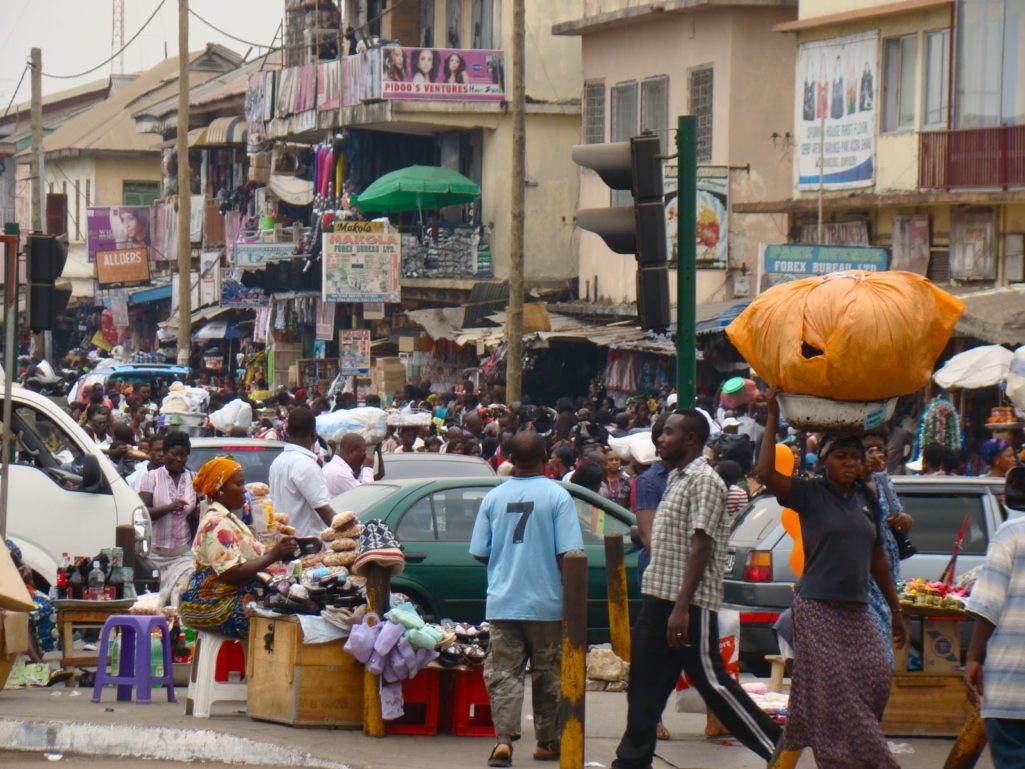Ghana’s economy continues to plummet as it struggles to improve the living standards of citizens.
The country’s public debt stock now stands at GH¢341.8 billion ($45.5 billion) with a corresponding debt to GDP ratio of more than 77% as of September ending 2021.
Analysts say that debt to GDP ratio has already crossed the 81% mark in 2022 with the government yet to find a way around without going to the International Monetary Fund for a bailout.
Revenue generation has been a major challenge for the Ghanaian government which continues to borrow significantly to service its debts.
Ghana has spent on average 147 billion Ghana cedis ($19.6 billion) just to service interest payments on previous borrowings.
With rating agencies already downgrading Ghana’s economy making it difficult for the government to borrow more, the government has been pushing through an electronic levy that would cover mobile money transactions.
That policy has received a lot of opposition from Ghanaians and is yet to be passed in the parliament.
In recent months, Ghanaians have complained about the high cost of living especially when it comes to fuel prices.
Workers Union agitates
The Ghanaian Trades Union Congress (TUC), the biggest umbrella body for Ghanaian public sector workers has already expressed worry over skyrocketing prices of goods and services following the hikes in fuel prices.
Diesel is currently selling between GH¢10 ($1.3) and GH¢11 ($1.4) per litre, while the price of petrol has crossed the GH¢9 ($1.2) mark at some filling stations.
The situation has been blamed on the rising inflation, depreciation of the Ghana Cedi and the fallouts from the Russian- Ukraine war.
It has led to an increase in transport fares and astronomical increase in prices of goods and services.
In a statement, the TUC said Ghanaian workers and businesses are feeling the pinch of the price hikes.
“Regardless of how one rationalizes the current situation, the truth is that the rising fuel prices have already had significant adverse impacts on living standards. Erosion of values of incomes has been severe, particularly for workers on fixed salaries. Many more Ghanaians have been pushed into poverty because of the rippling effects of higher fuel prices on general level of prices of other essential items”, it said.
The TUC suggested among others the removal of all taxes and levies on the fuel price build-up until prices on the international market stabilize.
“We propose that Government must immediately suspend all taxes and levies on petrol, diesel, LPG, and Kerosene. This should bring down prices of these fuel products by an average of about 15 percent”.
Traders call for action
The Ghana Union of Traders Association (GUTA) has also asked the government to implement plans that would stablize the country’s depreciating currency.
The continuous depreciation of the cedi against the American dollar, according to the traders is adversely impacting business activities, contributing to the current economic hardships.
Local media outlet, Citi FM quoted the Vice President of GUTA, Clement Boateng, as saying that until a comprehensive strategy is rolled out, the current hikes in prices of goods and services will worsen.
“Everything that we do is benchmarked on the dollar and we think the government must do something about the situation. If we talk about the telcos, the oil and extractive sectors, at the end of the year, they are repatriating their profits back, and you can see the chunk of monies they take from here so the government must look at its investment laws,” he said.
The Ghanaian currency has lost more than 14% of its value, between January and March 2022, a very significant drop compared to previous changes.
Government response
To respond to the pressing economic challenges, the Monetary Policy Committee of the Bank of Ghana has increased the policy rate – the rate at which it lends to commercial banks – by 2.5% per cent to 17%.
This is the first time since November 2018 that the rate has gone up so high, and it is expected to increase the cost of borrowing.
The government is also expected to implement some five key measures to mitigate the impact of the current economic challenges.
These include the reopening of the borders, expenditure cuts of up to 30 percent and cedi stabilization measures.
Ghana’s president on Tuesday told members of the country’s council of state in the capital Accra that the country’s economic crisis are not isolated.
“It is no secret that our economy is going through difficult times. It is also no secret that we are not alone in that exercise. The phenomenon that we’re facing, applies to many parts of the world as well. But that doesn’t therefore mean that government is impotent in trying to find solutions,” Nana Akufo-Addo said.
The Ghanaian president held a cabinet meeting with his ministers the previous weekend with signals there would be detailed strategy of how to tackle the crisis.
“The decision was that the Minister for Finance, on my instructions, is going to have a major engagement with the nation on Thursday, where he is going to be in a position to lay out specifically, the measures we’ve taken and we intend to take, to correct, as it were, put the ship of state, steep on a better keel”, he said during a meeting with the council of state members.
It is yet to be seen whether the government will be able to find a way out of this crisis domestically or opt for an IMF bailout.
Source: Africafeeds.com


